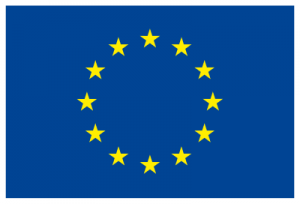European Parliament resolution of 8 September 2015 towards an integrated approach to cultural heritage for Europe (2014/2149(INI)).
Read More →
This project has received funding from the European Union’s Seventh Framework Programme for research, technological development and demonstration under grant agreement n° 612789.
Monthly Archives: October 2015
European Commission communication. Towards an integrated approach to cultural heritage for Europe
Communication from the Commission to the European Parliament, the Council, the European Economic and Social Committee and the Committee of the Regions towards an integrated approach to cultural heritage for Europe (COM(2014) 477 final).
Read More →European Parliament resolution. Harmonisation of certain aspects of copyright and related rights
European Parliament resolution of 9 July 2015 on the implementation of Directive 2001/29/EC of the European Parliament and of the Council of 22 May 2001 on the harmonisation of certain aspects of copyright and related rights in the information society (2014/2256(INI)).
Read More →European Policy Brief. Co-creation strategies: from incidental to transformative.
Co-creation within CH institutions is not a new phenomenon, but the current practice often is project based, run only by the educational staff, met by scepsis from curators and conservators, thus leaving a lot of potential results untouched. This policy brief, based on preliminary research findings, gives a short overview of the potential benefits of co-creative methods in the CH sector, of the current practices and a number of suggestions to further stimulate co-creation in cultural heritage on a strategic level.
Read More →European Policy Brief. RICHES Taxonomy of cultural heritage definitions.
This policy brief presents evidence and recommendations emerging from the research undertaken to develop the RICHES Taxonomy of terms, concepts and definitions, which aims to: ensure appropriate academic, professional and technical standards for research are met in identifying, analysing and understanding both existing ways and new models for defining CH and CH practices; develop a common CH language to serve the interests of the wider CH community, including policy-makers, cultural ministries of member states, regional, national and state authorities, public administrations, European institutions and researchers and professionals generally.
Read More →European Policy Brief. Digital Copyright Framework. The move from analogue to digital and new forms of IPR.
This policy brief describes how European policy-makers and European cultural heritage institutions should develop European copyright policies and strategies for the cultural heritage sector using the rights to culture and cultural rights as guiding principles. The impact is to lay emphasis on inter alia access to culture, cultural integrity and cultural communication and to develop ways in which copyright can support those goals.
Read More →D5.3 Fiscal and Economic Issues in the Digital Age
Report providing an economic analysis of the impact of taxation, public support and private contribution to the production, distribution and consumption of cultural heritage and to improve understanding of the geography of cultural activities and ways in which fiscal policy can become more efficient in the age of digitization.
Read More →D8.6 Project identity: booklet and logo
An overview of the design and definition of RICHES’ logo and a description of the project’s first dissemination materials.
Read More →D8.1 Website & Download Area
An overall description of the RICHES website, its sections, its technical infrastructures and its related services.
Read More →D8.3 International Conference Proceedings – Pisa
Proceedings of the First RICHES International Conference, “Cultural Heritage: Recalibrating Relationships”, which took place in Pisa, at the Museum of Graphics of Palazzo Lanfranchi, on 4 and 5 December 2014.
Read More →